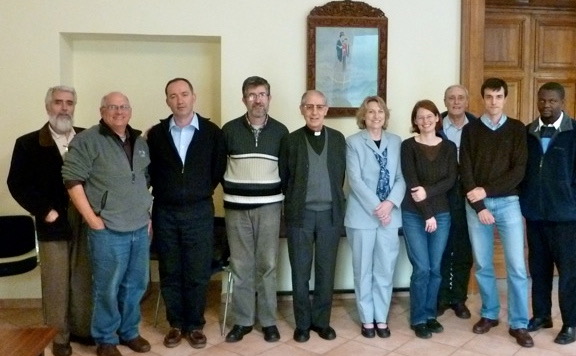By Ecojesuit

Five years before Laudato Si’ was released, Father Adolfo Nicolás SJ, Superior General of the Society of Jesus, convoked a task force on ecology in 2010 composed of Jesuits and lay collaborators. Their task: to respond to an important concern identified in the 35th General Congregation (GC 35) that Jesuits cannot remain indifferent to – the situation of widespread environmental destruction threatening our planet’s future. The result is a document, Healing a Broken World, published by the Social Justice and Ecology Secretariat and released in September 2011, with suggestions to examine personal lives, community lifestyles, and institutional practices.
Ecojesuit shares some sections of the document below, appreciating deeply what Fr Nicolás did in following through GC 35’s response to the ecological concern. Fr Nicolás wrote, “(j)ust as we Jesuits are called to promote and serve right relationships not only with God and with other human beings, in the same way and with the same urgency, we are called today to restore and heal humanity’s broken relationships with creation.”
Healing a Broken World
Part of the Society’s mission, as emphasized by General Congregation 35 (GC 35), is to respond to ecological or environmental challenges, “to appreciate more deeply our covenant with creation” (D 3, 36). The care of the environment “touches the core of our faith in and love for God” (D 3, 3). In stating this fact GC 35 follows closely the directives given by Benedict XVI. (From Introduction, 1)
Implementation of the general call of both GC 35 and the Church has led to the setting up of a Task Force (TF) on ‘Jesuit Mission and Ecology’ as one way of reflecting on practical ways to respect creation. Looked at from a historical perspective, it seems appropriate to make an “aggiornamento” of our Jesuit tradition on ecology. We understand fully the importance of reflecting on our mission and such environmental challenges as climate change and lack of good governance in exploiting natural and mineral resources. Such reflection is crucial to interpreting the signs of the times for we are dealing with an issue that challenges the very future of humankind. (From Introduction, 2)
The deepening of our faith experience in God’s creative gift of life calls for transformative change in the way we respond to the urgent task of reconciliation with creation. Creation, the life-giving gift of God, has become material, extractable and marketable. Full of paradoxes, the world confuses and accuses us, but holds out, at the same time, encouraging signs. There is fear, turmoil, suffering, and despair, but also expressions of hope and trust. All of us are responsible, some of us more than others; all of us suffer the effects, some more than others. Justified by technological prowess and consumed by greed, too many human beings continue to dominate and rape nature in the advance towards ‘progress’; too few reckon with the consequences of our actions. (From Vision, 5)
Rational and technical answers to the physical and biological challenges of this world dominate our experience, blunting our sensitivity to the mystery, diversity and vastness of life and the universe. The spiritual depth of communion with nature is banished from our experience by an excess of rationality, but if we want to respond to the searching questions of the women and men of our time, we need to go deeper and increase our communion with creation. We have much to learn in this from others so that their experience makes us draw deeper from our own faith; we need to know on our pulse the hope and healing sought by so many in the world today, especially those who are young or vulnerable and in need of peace across the land. (From Vision, 6)
Today, more than ever, we need to recognize Christ in suffering and ugliness, in the depth of all things as in the Passover, reconciling creation through Himself and renewing the Earth. Though powerless, we draw strength through Christ’s presence and with dignity experience meaning and love. ‘Seeing God in all things’ calls us into the mystical relation with all creation. The wisdom of God and the new triptych explaining our mission of reconciliation – these give us strength to listen to all people and to work with them. We recognise the wounded and broken world and humbly acknowledge our part; yet this is an invitation to respond, to be a healing presence full of care and dignity in places where the truth and joy of life are diminishing. (From Vision, 7)
Fr Nicolás died on 20 May 2020 and Ecojesuit, while mourning his passing, remembers his action response to deeply appreciate our covenant with Creation through Healing a Broken World.
Healing a Broken World is available as a pdf document and can be accessed here.


Leave a Reply